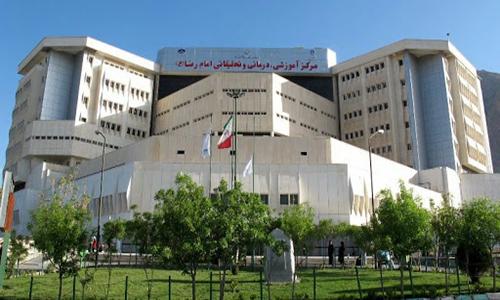Studying MBBS in Iran for MBBS aspirants has become a highly strategic pathway in recent years, especially for Indian students looking for globally recognised education, strong medical infrastructure, and a clear route toward clearing FMGE or the upcoming NExT examination. Iran offers a balanced medical education approach that combines theoretical knowledge with hands-on hospital exposure, making it suitable for students who aim to practice medicine in India or pursue international licensing exams like USMLE, PLAB, DHA, or AMC. With rising competition and extremely high medical education costs in India, Iran’s affordable and academically rich MBBS programs are attracting thousands of aspirants every year.
Why Iran Is Becoming a Preferred MBBS Destination
Iran has established itself as an emerging hub for modern medical education. The country offers advanced laboratory facilities, simulation-based medical training, and globally accepted teaching standards. Another key benefit is the affordable fee structure, which makes studying medicine financially feasible without compromising academic quality. Compared to Indian private medical colleges charging ₹80 lakhs to ₹1.5 crores, Iran offers high-quality MBBS education within ₹20–30 lakhs total.
Iranian universities follow updated medical curriculums aligned with NMC standards. The teaching style is structured, practical, and heavily research-oriented, which significantly benefits students preparing for FMGE/NExT.
Top Medical Universities in Iran for MBBS
Iran hosts several reputed government universities recognised by NMC, WHO, WDOMS, and international accreditation bodies. Some leading institutions include:
-
Tehran University of Medical Sciences
-
Shiraz University of Medical Sciences
-
Mashhad University of Medical Sciences
-
Iran University of Medical Sciences
-
Isfahan University of Medical Sciences
These universities maintain strict academic standards, experienced faculty, advanced laboratories, teaching hospitals, and well-equipped research centers.
Course Duration and Academic Structure
The MBBS duration in Iran is six years, including pre-clinical theory, clinical rotations, and compulsory internship training.
Years 1–2: Fundamentals
Students learn core subjects such as Anatomy, Physiology, Biochemistry, and Histology. This period builds a strong academic base needed for future clinical learning.
Years 3–5: Hospital-Based Clinical Training
Students begin interacting with real patients under the mentorship of certified doctors. Clinical rotations cover multiple departments:
-
General Medicine
-
Surgery
-
Pediatrics
-
Gynecology & Obstetrics
-
Ophthalmology
-
ENT
-
Radiology
-
Psychiatry
-
Orthopedics
Year 6: Internship
Students work full-time in hospitals, performing clinical tasks, documenting patient history, assisting doctors, and learning emergency care protocols.
Cost Structure and Living Expenses
Iran offers one of the most cost-effective MBBS opportunities worldwide.
-
Tuition Fees: ₹3–6 lakhs per year
-
Hostel Fees: ₹50,000–₹90,000 per year
-
Food & Living: ₹6,000–₹10,000 per month
The total cost ranges between ₹18–₹30 lakhs for the complete MBBS degree depending on the university and lifestyle.
Eligibility Requirements for Indian Students
To secure admission in Iran for MBBS, students must:
-
Score minimum 50% in PCB (Physics, Chemistry, Biology) in Class 12
-
Qualify NEET (mandatory under NMC guidelines)
-
Be 17 years or older at the time of admission
-
Have a valid passport and required academic documents
There is no entrance exam and no donation required.
How MBBS in Iran Helps With FMGE/NExT Preparation
Iran’s medical curriculum aligns well with the Indian medical framework, which makes FMGE/NExT preparation comparatively smooth. The subjects taught during MBBS are similar to MBBS in India, with a strong emphasis on:
-
Concept clarity
-
Diagnostic reasoning
-
Case-based learning
-
Practical clinical application
Many Indian students studying in Iran also join online FMGE/NExT coaching programs while pursuing their degree. Since internships in Iran provide extensive exposure in real hospitals, students develop the confidence to handle clinical situations — a major component of NExT.
FMGE/NExT Preparation Roadmap While Studying in Iran
A structured timeline is essential for exam success:
Years 1–2: Build Strong Basics
-
Master foundational subjects
-
Study from standard Indian textbooks
-
Start solving FMGE/NExT multiple-choice questions
Years 3–4: Strengthen Clinical Knowledge
-
Link theory with real patient cases
-
Study clinical subjects parallel to rotations
-
Join FMGE/NExT focused revision programs
Year 5–6: Full Exam Preparation
-
Attempt mock tests regularly
-
Revise high-weightage subjects
-
Focus on quick-revision notes and previous exam patterns
Students who follow this schedule can return to India well-prepared for licensing exams.
Career Scope After Completing MBBS in Iran
Upon completion, students can:
-
Appear for NExT/FMGE and practice in India
-
Pursue PG medical programs in India or abroad
-
Apply for international licensing exams like USMLE, PLAB, AMC, DHA, HAAD, Qatar Prometric, Oman Prometric
-
Join medical research programs or work in government/private hospitals
Iranian MBBS degrees are globally recognised, offering wide career flexibility.
Conclusion
Iran is proving to be a strong medical education destination for Indian students seeking quality learning, robust hospital exposure, and an affordable MBBS pathway. With the right preparation strategy and consistent focus on FMGE/NExT-aligned studies, students studying MBBS in Iran can return to India fully equipped to clear licensing exams and begin their medical careers with confidence.



